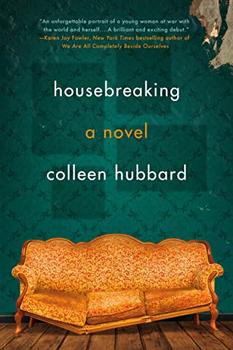Summary | Excerpt | Reviews | Beyond the book | Read-Alikes | Genres & Themes | Author Bio

Stories
by Ottessa MoshfeghAn electrifying first collection from one of the most exciting short story writers of our time.
Ottessa Moshfegh's debut novel Eileen was one of the literary events of 2015. Garlanded with critical acclaim, it was named a book of the year by The Washington Post and the San Francisco Chronicle, nominated for a National Book Critics Circle Award, short-listed for the Man Booker Prize, and won the PEN/Hemingway Award for debut fiction. But as many critics noted, Moshfegh is particularly held in awe for her short stories. Homesick for Another World is the rare case where an author's short story collection is if anything more anticipated than her novel.
And for good reason. There's something eerily unsettling about Ottessa Moshfegh's stories, something almost dangerous, while also being delightful, and even laugh-out-loud funny. Her characters are all unsteady on their feet in one way or another; they all yearn for connection and betterment, though each in very different ways, but they are often tripped up by their own baser impulses and existential insecurities. Homesick for Another World is a master class in the varieties of self-deception across the gamut of individuals representing the human condition. But part of the unique quality of her voice, the echt Moshfeghian experience, is the way the grotesque and the outrageous are infused with tenderness and compassion. Moshfegh is our Flannery O'Connor, and Homesick for Another World is her Everything That Rises Must Converge or A Good Man is Hard to Find. The flesh is weak; the timber is crooked; people are cruel to each other, and stupid, and hurtful. But beauty comes from strange sources. And the dark energy surging through these stories is powerfully invigorating. We're in the hands of an author with a big mind, a big heart, blazing chops, and a political acuity that is needle-sharp. The needle hits the vein before we even feel the prick.
The book comprises fourteen tales, generally dark, each unique in its expression of mute angst; sexual longings, fulfilled or repressed; human contacts tentatively made and frustratingly frayed. Yet each offers what this new writer's growing readership has come to expect: sudden splashes of outré humor in the midst of squalid, fetid realities...continued
Full Review
(522 words)
This review is available to non-members for a limited time. For full access,
become a member today.
(Reviewed by Barbara Bamberger Scott).
In the story "No Place for Good People," one of the short stories in Homesick for Another World by Otessa Moshfegh, a lonely widower takes a job overseeing the daily needs of three men with "moderate developmental disabilities." Despite his personal problems, the protagonist is able to see these men as "reasonable enough people." This attitude reflects a relatively recent, open-minded, respectful view of those who used to be clinically labeled feeble-minded, morons, or idiots.
Before the middle of the 20th century, most Americans had little or no contact with the disabled unless through family. In general, the greatest level of care offered by society was to the blind, and though such care was often paternalistic, there was at least a ...
This "beyond the book" feature is available to non-members for a limited time. Join today for full access.

If you liked Homesick for Another World, try these:

by K-Ming Chang
Published 2024
An erotic, surreal novella from the author of Organ Meats and Bestiary.

by Colleen Hubbard
Published 2022
Following a long-standing feud and looking to settle the score, a woman decides to dismantle her home—alone and by hand—and move it across a frozen pond during a harsh New England winter in this mesmerizing debut.
The moment we persuade a child, any child, to cross that threshold into a library, we've changed their lives ...
Click Here to find out who said this, as well as discovering other famous literary quotes!